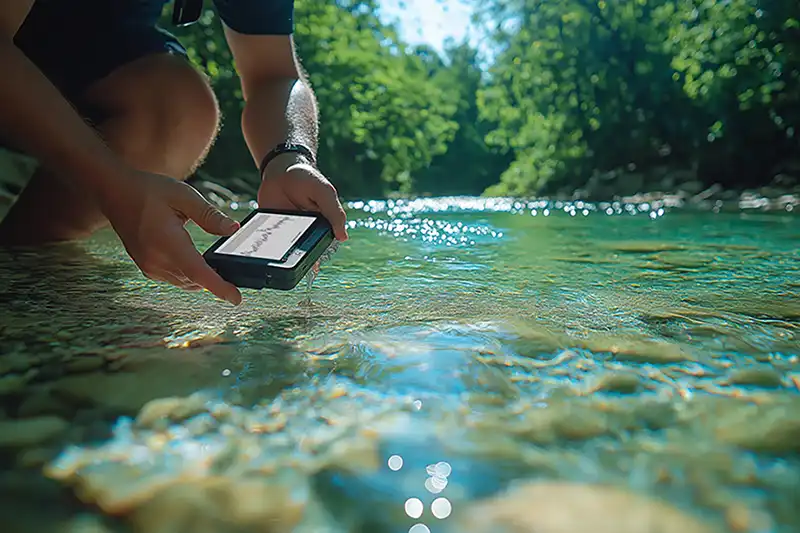A water quality sensor is a device designed to measure various water parameters to assess its quality. These sensors are used in a wide range of applications, including environmental monitoring, drinking water treatment, wastewater management, aquaculture, and industrial processes. They provide real-time data on different physical, chemical, and biological characteristics of water, helping to ensure safety, compliance, and optimal conditions.
Common Parameters Measured by Water Quality Sensors
- Physical Parameters:
- Temperature: Affects chemical reactions and aquatic life.
- Turbidity: Measures water clarity, indicating suspended particles.
- Conductivity: Indicates the presence of dissolved ions (salts, minerals).
- Chemical Parameters:
- pH: Measures acidity or alkalinity of water.
- Dissolved Oxygen (DO): Critical for aquatic life and oxidation processes.
- Oxidation-Reduction Potential (ORP): Indicates water’s ability to oxidize or reduce substances.
- Ammonia, Nitrate, Nitrite: Indicators of pollution or nutrient levels.
- Chlorine: Commonly measured in drinking water and pools.
- Heavy Metals: Such as lead, mercury, and arsenic.
- Biological Parameters:
- Biological Oxygen Demand (BOD): Measures organic matter decomposition.
- Chlorophyll: Indicates algal growth and eutrophication.
Types of Water Quality Sensors
- Single-Parameter Sensors:
- Measure one specific parameter (e.g., pH sensor, DO sensor).
- Multi-Parameter Sensors:
- Measure multiple parameters simultaneously (e.g., pH, conductivity, temperature).
- Optical Sensors:
- Use light to measure parameters like turbidity or chlorophyll.
- Electrochemical Sensors:
- Use electrodes to measure pH, DO, ORP, or conductivity.
- Colorimetric Sensors:
- Detect chemical changes based on color changes (e.g., chlorine).
Applications of Water Quality Sensors
- Environmental Monitoring:
- Track pollution levels in rivers, lakes, and oceans.
- Monitor ecosystem health.
- Drinking Water Treatment:
- Ensure water meets safety standards for human consumption.
- Wastewater Treatment:
- Monitor and optimize treatment processes.
- Aquaculture:
- Maintain optimal conditions for fish and other aquatic organisms.
- Industrial Processes:
- Ensure water quality for manufacturing, cooling, or boiler systems.
- Swimming Pools and Spas:
- Maintain safe and clean water for recreational use.
Advantages of Water Quality Sensors
- Real-Time Monitoring: Provides immediate data for quick decision-making.
- Accuracy: High precision in measuring critical parameters.
- Automation: Reduces the need for manual sampling and lab analysis.
- Cost-Effective: Saves time and resources in long-term monitoring.
Examples of Water Quality Sensors
- YSI Multiparameter Sonde: Measures DO, pH, conductivity, temperature, and more.
- Hach HQ Series: Portable meters for pH, DO, conductivity, and turbidity.
- Atlas Scientific Sensors: Modular sensors for pH, ORP, DO, and conductivity.
- SPECSENS Sensors: Modular sensors for pH, ORP, DO, TSS, COD, BOD, DOC, NO3-N, NO2-N, NH3-N, NH4+, temperature and conductivity.
In summary, water quality sensors are essential tools for monitoring and managing water resources, ensuring safety, and maintaining ecological balance. They are widely used across industries and environmental applications to provide accurate and reliable data.

